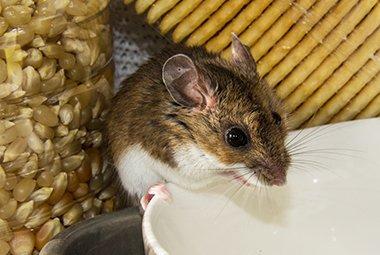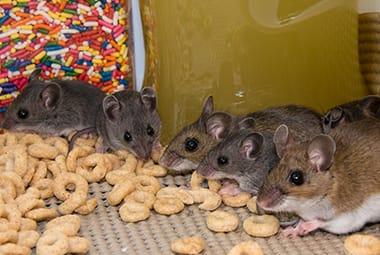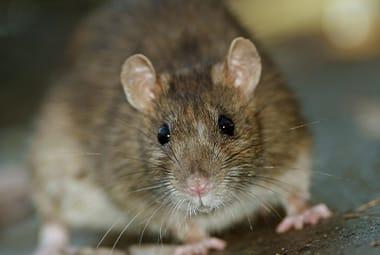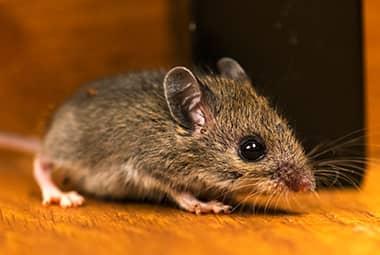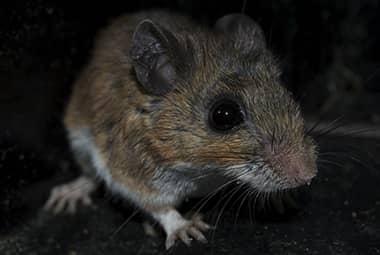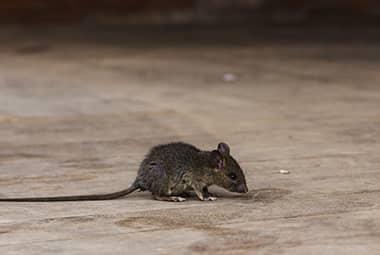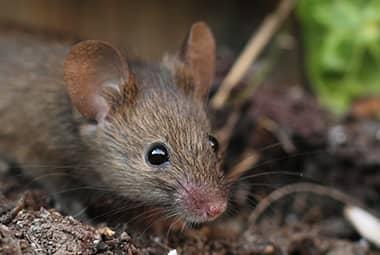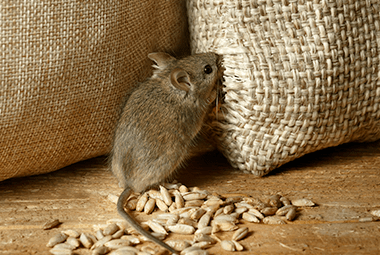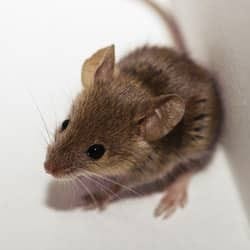The term “rodent” has become somewhat synonymous with mice and rats. While squirrels are also considered rodents, they don’t travel around inside Knoxville homes. They get into attic spaces and go in and out to gather food. So, for the purposes of this guide, we’re going to focus on mice and rats.
What Mice and Rats Are Pests in Knoxville?
In our area, house mice and deer mice are the mice to worry about, with the house mouse being the worst of the two. House mice love to live in our homes with us. When they get in, they tend to stay in permanently. Deer mice prefer rural areas and would rather infest a barn, shed ,or outbuilding. They can get into your home. But they may not stay inside your home.
Knoxville is home to two pest rats. They are the Norway rat and the roof rat. A case can be made for each of these rats being the worst of the two. Norway rats are considered by many to be the worst because they can get aggressive. But Norway rats prefer to create ground burrows outside rather than live permanently in your home. The roof rat, which is also referred to as the common house rat, prefers to be in man-made structures. When roof rats get in, they often stay in. But, like a squirrel, roof rats may go in and out to gather food. This makes the common house mouse the worst of all rodents that can get into your home.
Rodent Activity
A rodent that prefers to be in your home will be a greater threat to you, your family, and your property because it is prone to cause more damage and spread illness to more locations. Mice and rats chew holes. They chew their way into your home. They chew holes in insulation. They damage items that are in storage. They chew holes through sheetrock and baseboards. They chew on the wiring inside walls. They also spread organisms around your home. Some are so small you aren’t able to see them, such as bacteria and parasitic worms. Some are large enough to see, such as ticks, fleas and lice.
Rodent Attractants
There are a few things that can attract rodents to your yard. Removing them will reduce rodent populations and reduce your chances of an infestation.
- Rodents love bird seed as much as birds do. If seed falls onto the ground, you’re going to have a very attractive food source in your yard. Consider moving feeders to at least 20 feet away from your home.
- Rodents get into open trash. They can jump high and climb walls like ninjas. Make sure your trash is in sealed receptacles.
- Rodents prefer a yard that has lots of hiding places. Remove items from your backyard that don’t need to be there. This will reduce rodents.
Rodent Exclusion
There are many ways rodents can get into your Tennessee home. They can use entry points from the very bottom to the top of your chimney. Sealing entry points and protecting vulnerable spots is key to keeping all rodents out of your home.
- Seal cracks, gaps, and holes in your foundation walls, especially around pipes, windows and doors.
- Inspect your doors and windows for damaged screens, holes in frames, missing door sweeps, gaps in weatherstripping and damaged seals around the frames.
- Make sure your vents are covered.
- Make sure your weep holes are protected.
- Add metal flashing to areas of your roofline that are vulnerable.
- Install a cap for your chimney.
What a Pest Control Company Can Do
Once you’ve done what you can do to reduce rodents and seal them out of your home, it is time to consider what a pest control company can do. At Russell’s Pest Control, we use tamper-resistant traps to control rodent populations around Knoxville homes. This gives added protection from gnawing-rodents for homes that are sealed up tight, and it gives much-needed protection for homes that aren’t sealed very well. If you need help making your home rodent-free, reach out to us. We can help you get the control you’re looking for. Get started by requesting a free in-home pest evaluation.
